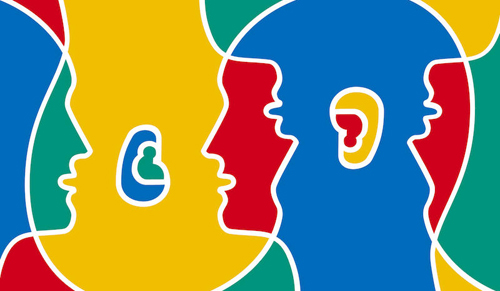
The event was celebrated for the first time in 2001, when the Council of Europe declared 26 September as European Day of Languages. Automatically, 2001 was named the European Year of Languages. Since then, the event has been celebrated annually in the 47 member countries of the Council of Europe. Usually, when the Day of Languages is celebrated, various events, contests for children and adults with linguistic themes are organized at national and international level, free courses/lessons of modern languages are offered to the guests, conferences are held, special TV or radio programs are prepared, etc. , all this to celebrate the European Day of Languages.
Celebrating the Day of Languages has the following goals:
- Awareness of the diversity of European languages;
- Encouraging the study of modern languages and the knowledge of different cultures;
- Developing anyone’s personality by continuously studying and enriching the vocabulary with new words from other languages;
- Easy communication with citizens of other countries in any sphere, whether it be tourism, business relations or cultural exchanges.
About 6,000 languages are spoken worldwide, 225 of which are European languages and only 24 are European official languages, the rest are regional or minority languages. The 24 official European languages are: Bulgarian, Czech, Croatian, Danish, English, Estonian, Finnish, French, German, Greek, Irish, Italian, Latvian, Lithuanian, Hungarian, Maltese, Dutch, Polish, Portuguese, Romanian, Slovak, Slovenian, Spanish and Swedish.
Of course, the most studied and spoken language in the European space is English (about 40%), followed by German, French, Spanish, Italian, etc. At the same time, it should be noted that the European Day of Languages aims to emphasize the study and knowledge not only of the official European languages, but also of the minority and regional ones, because they must not be forgotten.
In Europe, it is already a common practice for children to learn two or more foreign languages at the same time, and this process continues even among adults, because it is never too late to learn a foreign language. The fact is that more and more people are currently fluent in many foreign languages. The question is, why do some people learn foreign languages easily, while for others, it is difficult to know perfectly even their mother tongue? Is the issue about talent, hard work or something else? Without doubt, it takes a lot of work to get good results, and the European Day of Languages is an excellent opportunity to remind people how varied the languages spoken by us are, and how well would be for us to know at least a few of them.
The slogan of the United Nations Educational, Scientific and Cultural Organization (UNESCO) for the 21st century is: “To learn languages throughout life”. Linking this slogan to the European Day of Languages, we state that each of us should have a continuous interest in language learning, in order to facilitate communication with other people, for personal and professional development.
No comments
Add new comment